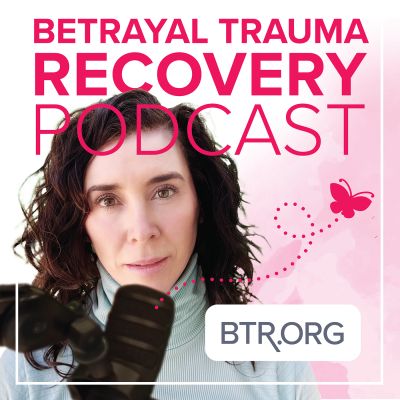btr.org - btr.org has daily, online Group and Individual Sessions for victims of emotional & psychological abuse and sexual coercion. For women experiencing pain, chaos, and isolation due to their husband’s lying, gaslighting, manipulation, porn use, cheating, infidelity, emotional abuse, and narcissistic abuse. Labeling a victim as "codependent" is a form of victim blaming. Pornography addiction / sex addiction are a domestic abuse issue. Narcissistic abuse is not a communication issue. We help women who are married, separated, or divorced heal through establishing emotional safety. If you suspect your husband is a narcissist, a pornography addict, or emotionally abusive, this podcast is for you. Every woman on our team has experienced betrayal trauma first hand. To learn more about Betrayal Trauma Recovery, visit BTR.ORG
https://www.btr.org/podcast/
episode 23: 40 Years Of Abuse And Trauma
Many women in our community have been abused for years, even decades.
Abusive men are incredibly capable of hiding abuse and making it difficult for women and others to detect.
Florence, a member of the Betrayal Trauma Recovery community spoke with Anne on the free BTR podcast. Florence lived through 40 years of trauma and abuse. She shares how she has found a degree of peace and safety. Tune in to the free BTR podcast or read the full transcript below.
Women who have been abused and betrayed for decades may wonder if it's possible to ever feel safety and peace again. From Florence's powerful story, we found three truths about healing and peace after abuse and trauma.
Telling Your Story Can Help You Heal From Emotional Abuse
The freedom to be honest and forthright makes it possible to handle and work with.
Florence, member of the Betrayal Trauma Recovery community
Abusive men often isolate their victims from supportive communities by imposing a policy of silence about the abuse. Sometimes victims feel a strong drive to protect their abuser from scrutiny.
Women may feel ashamed or embarrassed about their abuser's behavior. They may feel fear that others won't believe them if they do tell the truth. The consequences of telling the truth may feel overwhelming. There are many reasons that women stay silent.
Regardless, women can begin to find healing as they openly share the truth about what is happening to them. The Betrayal Trauma Recovery Group offers a safe place for women to speak about their experiences and find community and validation.
How Can I Share My Story?
It may feel overwhelming to share your experiences in a verbal conversation. Here are some gentle ways you can begin expressing your feelings:
* Journal
* Draw or paint
* Write a letter to yourself
* Write a letter to your future self
* Write a letter to your children
* Write a poem
* Look in the mirror and tell yourself your story
* Dance
* Model clay or play-doh
Processing your trauma in gentle ways can help you become ready to share it with others.
Use Professionals Who Understand Trauma and Abuse
I was told by a lot of professionals, “Oh, you need counseling.” I tried that. I’m sure this isn’t true across all mental health professionals, but what I found was that most therapists are not equipped to deal with this kind of abuse. They tend to try to use their behavior modification, which they’ve learned in graduate school somewhere, “If you do this, then he’ll do that. If you do that.” It doesn’t work.
Florence, member of the Betrayal Trauma Recovery community
Often, counselors and therapists tell victims to "work on themselves". Generally, marriage counsellors will have victims focus on communication and attachment. Never actually recognizing that the issue is not with how the couple relates to each other, but that he is abusing her.
Finding and using trauma and abuse-informed professionals is essenti...
